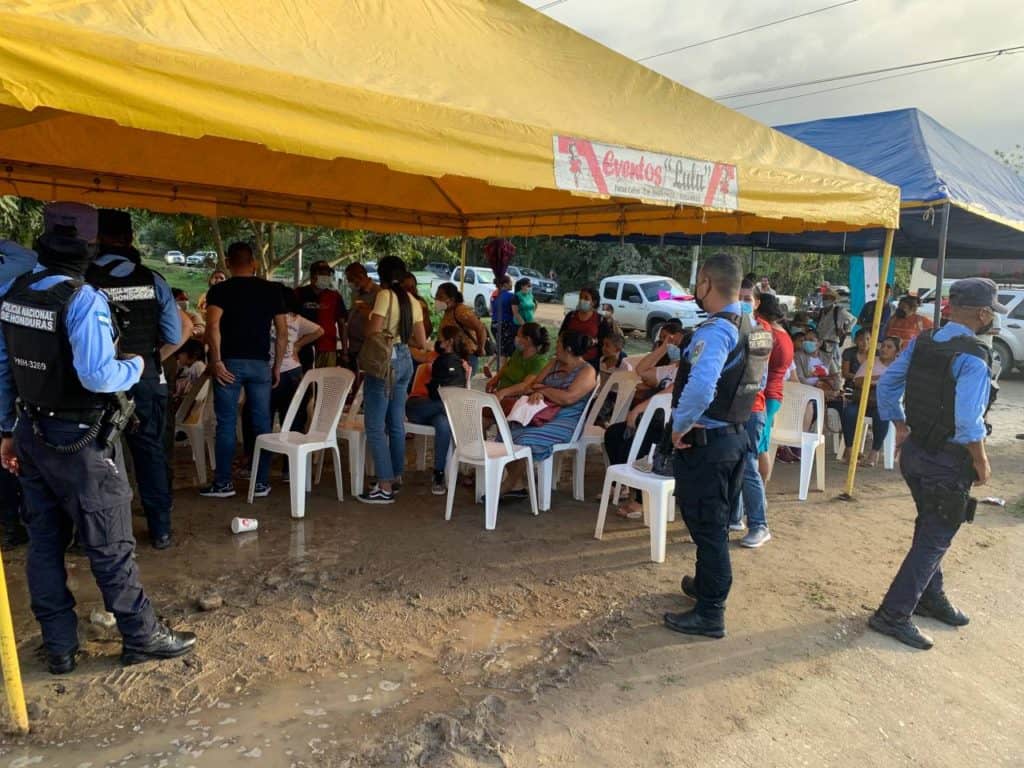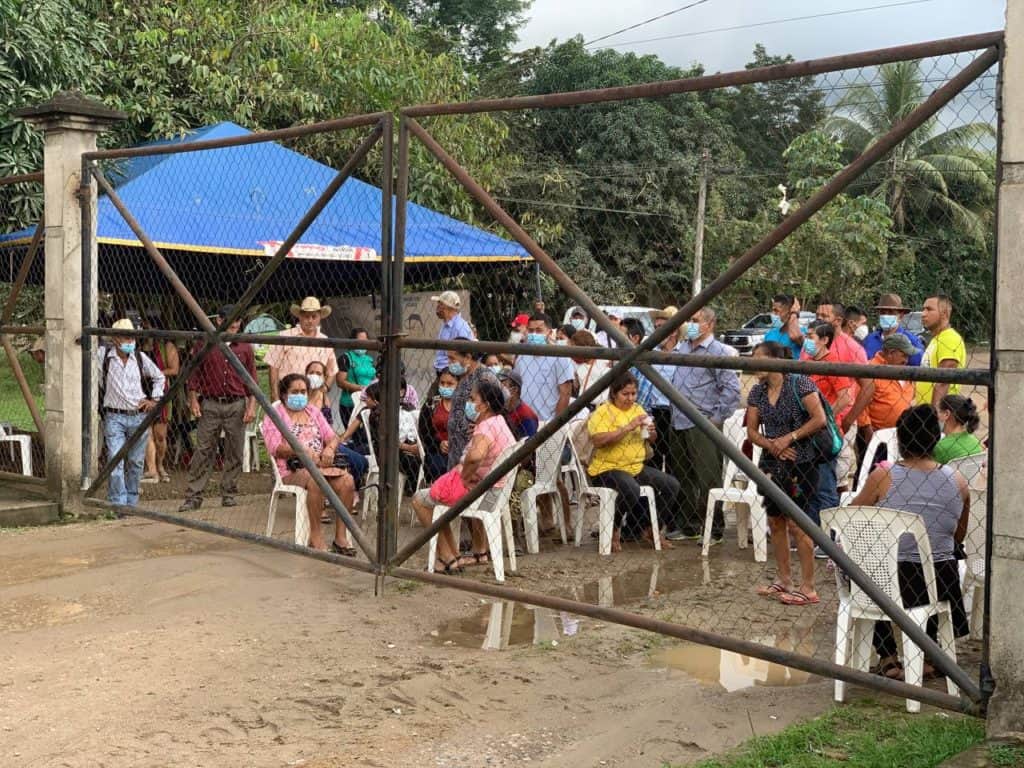Last update: 5:00 pm, February 14, 2022
- Understanding the recent events in the Guapinol case is challenging because of the number of technical legal arguments coming into play. I will do my best to explain the situation.
- On Wednesday, February 9th, the same day that the six water defenders were found guilty by three judges in Tocoa, the defense team presented a request to the same court to apply an amnesty recently approved by the new National Congress. From the day of the request, the court had three days by law to schedule a hearing to rule on the request.
- The next day on February 10th, the Constitutional chamber of the Supreme Court published a ruling on two injunctions (amparos) presented by the water defenders’ legal team over a year or more ago, that allege violations to their fundamental rights. The details of the two rulings involve:
- On March 3, 2020, the defense team of the water defenders appealed the decision of the National Jurisdiction court in Francisco Morazán that found sufficient reasons to send the case against the defenders to trial. The Appeals court denied the appeal and then the defense presented an injunction to the Constitutional chamber of the Supreme Court, against the decision making several arguments including that the National Jurisdiction court did not have the jurisdiction to hear the case. In response, the Constitutional chamber ruled in favor of the defense’s arguments, agreeing that the case was not being heard by a judge that has the correct jurisdiction, which violates the fundamental rights of the defenders [NOTE: National Jurisdiction courts were created to hear cases involving organized criminal groups. The defenders have nothing to do with organized crime and thus, this particular court does not have jurisdiction to hear the case]
- The defense team appealed the decision of the Tocoa court to hold the defenders in pre-trial detention. The Appeals court in La Ceiba then denied the appeal on February 2, 2021, maintaining the eight men in pre-trial detention. The defense team then presented an injunction against the decision. In response, the Constitutional chamber disagreed with the Appeals court’s decision, ruling that the rights of the water defenders are being violated by the pre-trial detention (based on the arguments alleged in the injunction).
- Today, all parties were convened to discuss the amnesty request (to comply with the three day scheduling requirement). The defense team representing the water defenders revoked their request for the amnesty and asked the court, in light of resolutions published by the Constitutional chamber, to change the pre-trial detention status of the water defenders.
- The prosecution argued the Tocoa court could not rule on the request because it had to wait for instructions from the La Ceiba Appeals court (that was subject to the injunctions ruling). This is because, according to the prosecution, the Appeals court would have to issue a new resolution in relation to the pre-trial detention of the defenders in light of the Constitutional chamber’s recent decision. The defense team for the water defenders argued that the Constitutional chambers decisions are publicly known and that the new rulings on the injunctions argue that the defenders’ fundamental rights have been violated. A continuation of their detention (as per the Constitutional chambers ruling) is illegal and arbitrary.
- The three judges in the Tocoa court ruled that they would wait for communication (that apparently is on its way) from the Appeals court in La Ceiba. The court will give their decision tomorrow about whether the water defenders will be released. In response to the court’s decision to delay immediately releasing the defenders, the defense attorneys present a habeas corpus [which initiates a judicial process to investigate their illegal detention]. Immediately following today’s hearing, Honduran police showed up at the encampment outside of the court.

Photo credit Guapinol Despierta

